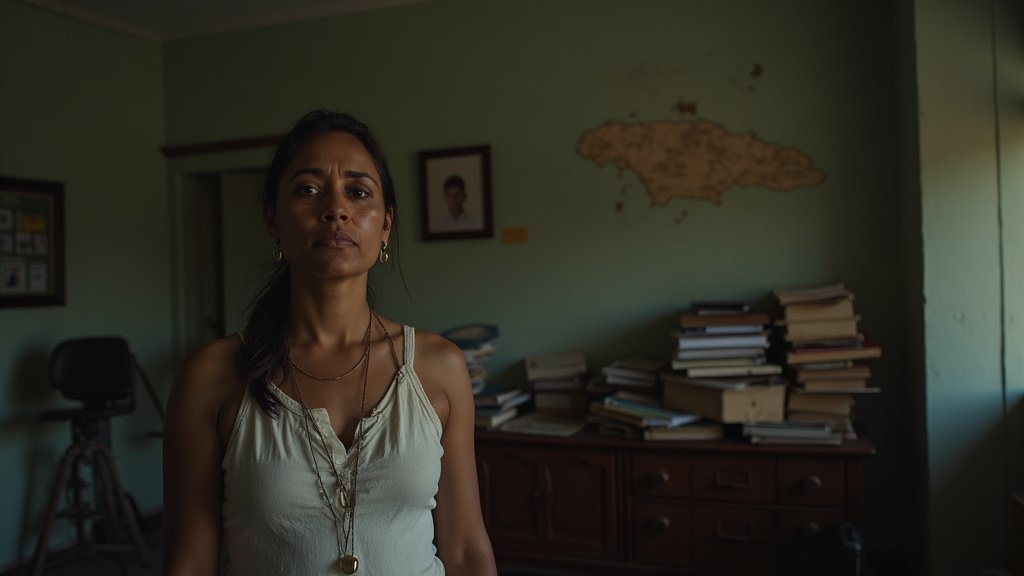The non-profit organization Stand Up For Jamaica is confronting an uncertain future following a significant reduction and eventual halt in funding from the United States Agency for International Development (USAID). This development has left the organization, which provides crucial services to vulnerable populations across Jamaica, in a state of crisis. Maria Carla Gullotta, the executive director of Stand Up For Jamaica, is now urgently seeking financial assistance from international donors to sustain its vital programs.
Immediate Impact on Services and Staff
Stand Up For Jamaica has been compelled to scale back operations and dismiss staff due to the abrupt funding shortfall. A significant project focused on combating gender-based violence has been reduced, and other essential initiatives are under threat. The organization’s work, which has historically touched the lives of over 1,600 male inmates and 600 women through rehabilitation programs, also includes providing legal representation, social work services, and business development assistance to victims of domestic violence and other marginalized individuals. The reduction in funding jeopardizes these efforts, leaving many individuals who rely on these services facing further hardship.
The Broader Context of USAID Funding Shifts
The crisis at Stand Up For Jamaica is emblematic of a wider trend affecting non-governmental organizations (NGOs) in Jamaica and globally. Reports indicate that the Trump administration’s decisions regarding USAID, including pauses and potential shuttering of the agency, have created widespread uncertainty. This has led to a general concern among local NGOs, many of whom are scrambling to find alternative funding streams. For organizations like Stand Up For Jamaica, which have relied on consistent USAID support, the sudden withdrawal has created an immediate and severe financial strain. The impact extends beyond Stand Up For Jamaica, with other local groups, including those focused on HIV/AIDS response, also facing difficulties in maintaining their operations and distributing essential medical supplies and testing services.
Stand Up For Jamaica’s Crucial Role in the Community
For years, Stand Up For Jamaica has been a cornerstone of support for some of the island’s most vulnerable citizens. Its work within correctional facilities since 2007 has focused on rehabilitation and reintegration, aiming to reduce recidivism by providing inmates with education, professional skills, and psychological support. The organization has also been a staunch advocate for human rights, working to ensure access to justice and providing defense for abused women and children. Their initiatives have tackled complex issues such as mental health challenges among youth and advocating for better legislative frameworks for juveniles in conflict with the law. The potential loss of these services represents a significant blow to community well-being and social justice efforts in Jamaica.
A Plea for External Support
In response to the dire financial situation, Maria Carla Gullotta has made an impassioned appeal to potential donors, including countries like Canada, the European Union, and organizations within the Caribbean Community. The organization, which employs around 30 staff members, incurs substantial operational costs for materials, stationery, and essential equipment. Gullotta emphasized that without urgent financial assistance, maintaining these programs and preventing a complete disconnection from the communities they serve will be extremely challenging. Local NGOs are reportedly exploring various fundraising activities and applying for grants from other international bodies, but the scale of the need is immense.
The implications of these funding cuts extend to the broader development landscape in Jamaica. USAID has historically played a significant role in supporting various sectors, including health, education, and youth empowerment, through initiatives like the Youth Empower Activity. The suspension of such funding could slow development efforts, exacerbate unemployment, and weaken critical social support systems, potentially creating a vacuum that other international actors, such as China, might seek to fill, thereby shifting geopolitical dynamics.
The ongoing crisis faced by Stand Up For Jamaica highlights the precarious situation of many vital non-profit organizations. As the organization seeks to navigate this challenging period, its plea for support underscores the critical need for sustained international and regional commitment to community development and human rights initiatives in Jamaica. The news serves as a stark reminder of the interconnectedness of global aid and local impact.

